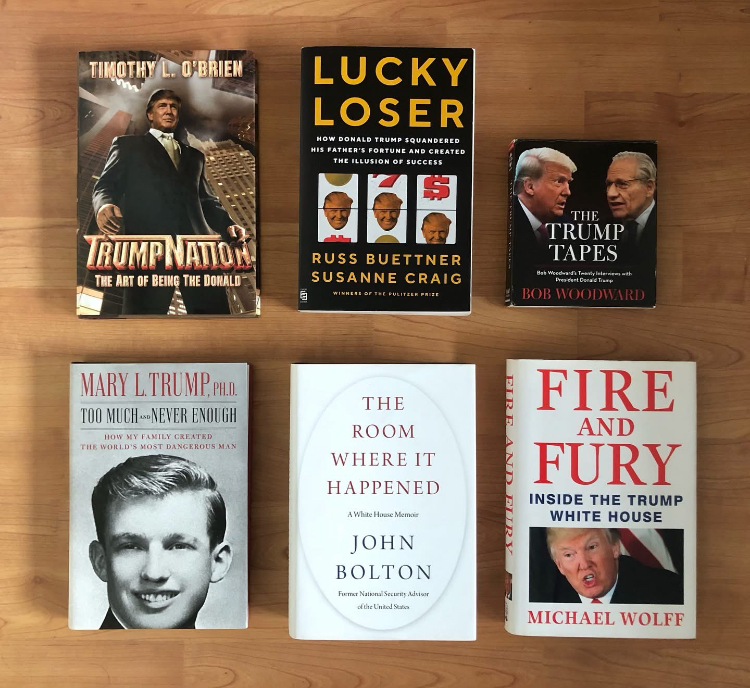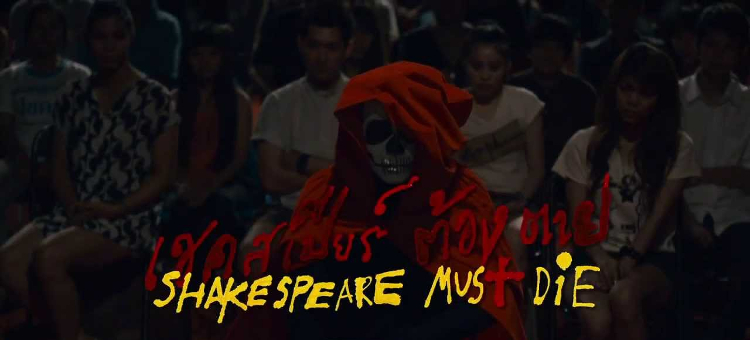The second annual Phimailongweek (พิมายฬองวีค) experimental arts festival will take place at Phimai, in Korat province, from 1st to 15th August. The theme of this year’s event is Midnight Monsoon (ภาคมรสุมฝัน), and it includes a programme of overnight film screenings at various locations around the ancient town, titled Phimailongdoo: Midnight Screening (พิมายฬองดูววว: ภาพยนตร์เที่ยงคืน).
Undoubtedly the highlight of the festival will be on 2nd August at Victory Gate: screenings of previously censored films, a provocative recent documentary, and a discussion about film censorship. This session will begin with three short films by Tanwarin Sukkhapisit, including I’m Fine (สบายดีค่ะ), for which she sat in a cage next to Democracy Monument in a commentary on political freedom.
Midnight Talk
Tanwarin will then take part in มรดกของการเซนเซอร์ ผลกระทบ จากความขัดแย้ง และเสรีภาพในการสร้างภาพยนตร์ (‘the legacy of censorship and the impact of conflict on freedom for filmmaking’), a
Midnight Talk discussion with fellow director Ing K. Nontawat Numbenchapol was originally scheduled to appear, though he is unable to attend; Tanwarin, Ing, and Nontawat have all made films that were previously banned in Thailand, and I interviewed all three directors for
Thai Cinema Uncensored.
Ing’s
Shakespeare Must Die (เชคสเปียร์ต้องตาย) will be shown after the discussion. After midnight, in the early hours of 3rd August, it will be followed by two political documentaries: Nontawat’s
Boundary (ฟ้าต่ำแผ่นดินสูง) and Uruphong Raksasad’s
Paradox Democracy.
Shakespeare Must Die
Shakespeare Must Die was banned by the Ministry of Culture in 2012, and the ban was upheld by the Administrative Court in 2017. Ing’s battle with the censors, documented in her film
Censor Must Die (เซ็นเซอร์ต้องตาย), went all the way to the Supreme Court, which finally
lifted the ban last year. After its belated
theatrical release, it has since been screened at
Burapha University and
Chiang Mai University.
Shakespeare Must Die is a Thai adaptation of William Shakespeare’s
Macbeth, with Pisarn Pattanapeeradej in the lead role. The play is presented in two parallel versions: a production in period costume, and a contemporary political interpretation. The period version is faithful to Shakespeare’s original, though it also breaks the fourth wall, with cutaways to the audience and an interval outside the theatre (featuring a cameo by the director).
In the contemporary sequences, Macbeth is reimagined as Mekhdeth, a prime minister facing a crisis. Street protesters shout “
ok pbai!” (‘get out!’), and the protests are infiltrated by assassins listed in the credits as ‘men in black’. Ing has downplayed any direct link to Thai politics, though “Thaksin
ok pbai!” was the
People’s Alliance for Democracy’s rallying cry against Thaksin Shinawatra, and ‘men in black’ were blamed for
instigating violence in 2010. Another satirical line in the script — “Dear Leader brings happy-ocracy!” — predicts Prayut Chan-o-cha’s propaganda song
Returning Happiness to the Thai Kingdom (คืนความสุขให้ประเทศไทย).
The parallels between Mekhdeth and Thaksin highlight the politically-motivated nature of the ban imposed on the film. Ironically, the project was initially funded by the Ministry of Culture, during Abhisit Vejjajiva’s premiership: it received a grant from the ไทยเข้มแข็ง (‘strong Thailand’) stimulus package. The Abhisit government was only too happy to greenlight a script criticising Thaksin, though by the time the film was finished, Thaksin’s sister Yingluck was in power, and her administration was somewhat less disposed to this anti-Thaksin satire, hence the ban.
Although the film was made more than a decade ago, its message is arguably more timely than ever, as
Thaksin’s influence over Thai politics continues.
He returned to Thailand in 2023, and his Pheu Thai Party is now leading
a coalition with the political wing of the military junta.
The film’s climax, a recreation of the 6th October 1976 massacre, is its most controversial sequence.
A photograph by Neal Ulevich, taken during the massacre, shows a vigilante preparing to hit a corpse with a chair, and
Shakespeare Must Die restages the incident. A hanging body (symbolising Shakespeare himself) is repeatedly hit with a chair, though rather than dwelling on the violence, Ing cuts to reaction shots of the crowd, which (as in 1976) resembles a baying mob.
Ing didn’t mince her words in her
Thai Cinema Uncensored interview, describing the censors as “a bunch of trembling morons with the power of life and death over our films.”
Thai Cinema Uncensored also includes an insider’s account from a member of the appeals committee, who said he was obliged by his department head to vote against releasing the film: “I had to vote no, because it was an instruction from my director. But if I could have voted freely, I would have voted yes.”

Boundary
Boundary documents the 2008 conflict between Thailand and Cambodia when the disputed Preah Vihear Temple was exploited for nationalist political gain. The issue was so sensitive that the director couldn’t even reveal his identity while filming at the temple. As he told me in his
Thai Cinema Uncensored interview: “I could not tell anyone in Cambodia that I’m Thai, because it would be hard to shoot. I had to tell everybody I’m Chinese-American... My name was Thomas in Cambodia.”
The festival screening is especially timely, as
another border dispute between Thailand and Cambodia is currently taking place. At a time when the Cambodian government is inflaming tensions, and nationalist groups in Thailand are exploiting the political crisis,
Boundary represents a plea for de-escalation on both sides, and a reminder of the dangers of history repeating itself.
Boundary is composed largely of silent, still sequences depicting the serenity of rural life, as a counterpoint to the fierce border dispute surrounding the temple. Nontawat begins by interviewing Aod, a young soldier, in his home village. Idyllic sequences of novice monks bathing and Aod’s father fishing are contrasted with Aod describing his military conscription and the army’s crackdown against red-shirt protesters in 2010.
After footage of the Thai military firing at their Cambodian counterparts near Preah Vihear, we see damage to houses and a school close to the temple, caused by bombs and gunfire from Cambodian troops. Finally, at the end of the film, Nontawat’s camera explores the temple itself, the ruined Khmer compound that has been the subject of such bloodshed and ultra-nationalism.
Boundary was previously shown
at Lido Connect and Warehouse 30 in Bangkok in 2019. Its most recent screenings were
at Chiang Mai University,
the Thai Film Archive in Salaya, and
Thammasat University in Bangkok. It has been subject to censorship twice: it was cut before its theatrical release in 2013, and
a screening in Chonburi was prohibited by the military in 2015.

Paradox Democracy
Paradox Democracy documents the recent student protest movement, and features clips from rally speeches by Arnon Nampa and other protest leaders, intercut with extracts from
The Revolutionist (คือผู้อภิวัฒน์), a play about Pridi Banomyong staged by the Crescent Moon theatre group in 2020. The film’s working title was
Paradox October, and it includes footage shot at the 6th October 1976 commemorative
exhibition at Thammasat University in 2020. It was previously shown at
The 28th Thai Short Film and Video Festival (เทศกาลภาพยนตร์สั้น ครั้งที่ 28), and
at Chiang Mai University.
When My Father Was a Communist
Vichart Somkaew’s new documentary
When My Father Was a Communist is another highlight of the festival, screening on 8th August at Phimai Wittaya School. Vichart interviewed his father, Sawang, and other former members of the Communist Party of Thailand, and the film is a valuable social history. The veterans explain their decisions to join the CPT, and describe their experiences in the forests of Phatthalung.
When My Father Was a Communist is also a record of the state’s violent suppression of communist insurgents, hundreds (potentially thousands) of whom were burned in oil drums in 1972. These so-called ‘red barrel’ deaths were most prevalent in Phatthalung, and have never been officially investigated. (The names of the victims are listed before the film’s end credits.)
There have been other documentaries about the red barrels, but
When My Father Was a Communist stands out for Vichart’s close connections to the subject. This is a deeply personal project, as he was born in Phatthalung, and he is documenting the memories of his elderly father.
The film notes that the repressive atmosphere of the 1970s has not disappeared. One speaker says that the political system has barely changed since the military dictatorship after the 1976 coup. Another makes a direct comparison between the suppression of political opponents then and now: “dissolving political parties, slapping people with Article 112 charges... It’s like arresting them and throwing them in red barrels, but they do it in a different way now.”
When My Father Was a Communist was first shown at the Us coffee shop in Phatthalung on 10th July. It was also screened at Vongchavalitkul University in Korat on 23rd July, A.E.Y. Space in Songkla on 26th July, and Lorem Ipsum in Hat Yai on 27th July.

Coup d’état
On 1st August, a selection of short films by local filmmakers will be shown at Victory Gate. These will include Natthapol Kitwarasai’s
Coup d’état, a dialogue-free, black-and-white film in which a soldier rummages through an old man’s meagre possessions. The man watches impassively, apparently oblivious to the trespassing soldier, and spends his time sleeping and swimming, which symbolise freedom for the director. Although the drama is allegorical, the film opens with photographs of the military leaders who instigated Thailand’s many coups.
Coup d’état was previously shown in the online
Short Film Marathon 26 (หนังสั้นมาราธอน
26).
The Body Craves Impact as Love Bursts
Wattanapume Laisuwanchai’s
The Body Craves Impact as Love Bursts (ร่างกายอยากปะทะ เพราะรักมันปะทุ) will also be screened at Victory Gate, on 14th August. The video features images of a man and woman tantalisingly close and facing each other, yet separated. As the director explained in his artist’s statement, the installation was made in solidarity with the rapper
Elevenfinger, who is serving a prison sentence for possession of ping-pong bombs used in anti-government protests: “I have visited him and witnessed the despair not only affecting him and his partner but also their families and relatives. This situation mirrors the plight of other political prisoners”.
The video ends dramatically with flashing images and footage of fireworks, filmed at
Thalugaz protests in 2021. It was first shown as an installation at the
Procession of Dystopia exhibition last year. It has also been screened at
The 7th Bangkok Experimental Film Festival (เทศกาลหนังทดลองกรุงเทพฯ ครั้งที่ 7),
Can’t Stop Won’t Stop, and
Cinemine/d.

No Exorcism Film






























